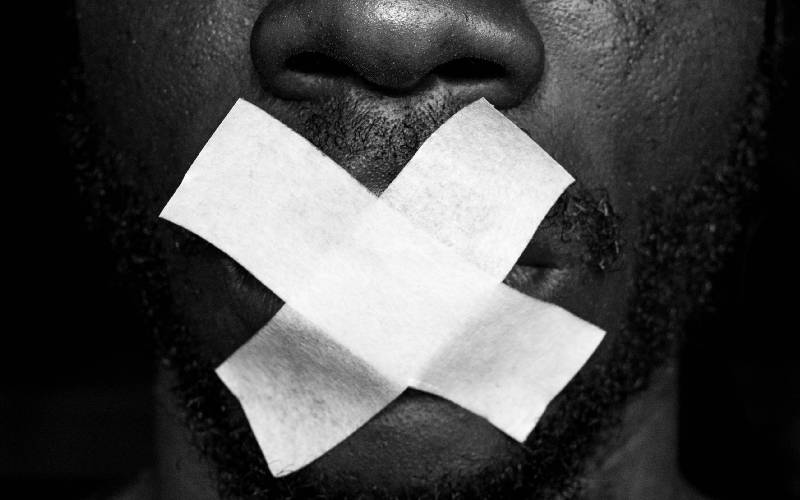×
The Standard e-Paper
Home To Bold Columnists

This culture of silence has seen cases of gender-based violence and other vices go unreported. [Courtesy]
One of the biggest weaknesses of many Kenyans is their tendency to keep quiet when they witness something going wrong. We rarely speak up in support of a person being victimised, perhaps for fear of being persecuted or having to give police reports. We are known to embrace silence, especially when we feel that other people’s actions do not affect us.